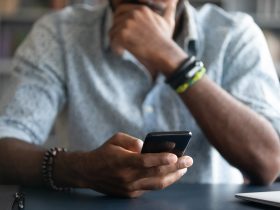PayPal is one of the most commonly used methods to send and receive money online. With over 286 million users, it’s no wonder that hackers target the service and its account holders.
Was your PayPal account hacked? If so, there are steps you need to take sooner than later to protect your account and funds. If you’ve avoided a hack so far, make sure you check out our tips for how to protect your PayPal account from an attack below.
Was Your PayPal Account Hacked?
Are you dealing with a PayPal hack? If you’re not sure if you’re dealing with a data breach or a poor connection, consider these tell-tale signs of a PayPal account hack.
- Unauthorized activity – This is probably the most obvious sign of a PayPal hack. If you notice any transactions, either incoming or outgoing, that were not approved or expected, investigate them immediately. Even small dollar amounts should be taken seriously as hackers often move small amounts first to test the waters.
- Strange notifications – Just as you should immediately investigate unauthorized activity, you should also look out for notifications alerting you to changes in your account details or profile, like your name or email. Your account and its data may be compromised.
- Denied payments – If you’re unable to complete a PayPal purchase online, you should look into the reason behind the denial right away.
If you’re dealing with a hacked PayPal account, your funds are in danger. Don’t waste any time waiting to see what will happen.
Do you know about Avira Free Security?
Say goodbye to scammers, hackers and slow devices with just one click
How Are PayPal Accounts Hacked?
If you understand how hackers can compromise accounts, you’ll be better prepared when it comes to protecting your own. Here are some of the most common ways hackers gain access to PayPal funds and accounts.
- Phishing attacks – If you’re not careful, you can hand over the key to your PayPal account without realizing it. If you ever receive a suspicious phone call from a supposed PayPal representative or open an email asking for you to confirm your PayPal password, proceed with extreme caution.
- Stolen passwords – PayPal isn’t immune to data breaches. A 2017 breach affected 1.6 million customers. Should your sign-in data become compromised, either through PayPal or another site if you use the same credentials, it wouldn’t take long for a hacker to gain access to your account.
- Weak security – PayPal allows users to enable two-factor authentication. Account holders who decide to skip this additional security step won’t be notified when someone logs into their account, leaving their funds at severe risk.
PayPal is excellent at monitoring login activity. In fact, they’ll limit your account if they suspect it’s been compromised. But at the end of the day, it’s up to each account holder to make sure they’ve taken the necessary precautionary steps to prevent an account hack. Here you can learn how to check your PayPal privacy settings for optimal security.
This post is also available in: FrenchSpanishItalianPortuguese (Brazil)













